MY PUBLICATIONS
MY PUBLICATIONS
MY PUBLICATIONS
MY PUBLICATIONS
MY PUBLICATIONS
MY PUBLICATIONS


Post-Traumatic Stress Disorder (PTSD) is the most common mental disorder in people who have experienced painful and difficult experiences. However, many studies also indicate an increased risk of other anxiety disorders occurring in the months following traumatic events. Additionally, some of the symptoms of PTSD can be similar, and sometimes even identical to those characteristic of other anxiety disorders.
This situation makes it difficult for even experienced clinicians to make a correct diagnosis. To determine specific differences between PTSD and other anxiety disorders, it is necessary to closely examine both the symptoms present and the factors responsible for their development.
March 2021 – “Independent parenting – a single father in the psychologist’s office”
What do we know about families in which fathers take on the primary roles? How can therapeutic work be done with a single father?
November/December 2020- „Magical thinking in childhood”:
Magical thinking is a belief that one’s ideas, thoughts, actions can influence the course of events in the material world. It can also relate to imaginary friends. While magical thinking in adults is sometimes a symptom of a mental health disorder, it is widely considered normal in children. How can it help in psychological therapy processes? Case studies referred to in this article prove that magical thinking is helping children in some of the difficult stages in their life. The article describes how magical thinking can be useful in therapeutic conditions and tells the percentage of children with imaginary friends.
May/June 2020- “Emotional pain after miscarriage.”
Miscarriage is a traumatic event experienced among many women. However, there is a huge need for research on this subject. The article “Emotional pain after miscarriage” is focused mainly on the psychological impact, which can lead to additional issues. It answers questions such as: How does miscarriage change women’s perception of herself? What is the impact on a couple’s relationship after experiencing such a difficult moment? I also covered the information about the signs of depression, trauma and anxiety disorder after the loss of pregnancy. The support for women includes introducing an up-to-date treatment plan, psychoeducation for women and her relatives, guidance for other mental and physical health professionals (such as midwives and GPs). Practical insight into the mental health work with women suffering from miscarriage was delivered in an interview with Tricia Murray. Tricia is a doula and therapist, working with parents across Scotland.
November/December 2019 “Schizophrenia- epidemiology and diagnosis.”
Schizophrenia is a severe mental disorder in which people interpret reality abnormally. Patients who have schizophrenia may experience some combination of hallucinations, delusions, and extremely disordered thinking and behaviour that impairs daily functioning, and can be disabling. What are the reasons for a person’s development of schizophrenia? The article describes the latest research on this topic. Presented in the text case study is integrated with full criteria which knowledge is crucial for a correct diagnosis.
July/August 2019 – „Attachment parenting in adoptive families.”
Attachment parenting is a topic which I am particularly interested in. Research shows how essential for mental health is the bond created with a primary caregiver and a baby. Based on Bowlby’s theory of attachment evaluation, attachment parenting is becoming more popular amongst parents all over the world. Is it possible to be an attached parent when raising adopted children? How can adoptive parents create a strong bond with older children? Is attachment parenting the same as stress-free parenting? The article is the answer to some of these questions. During the research for the article, I carried on numerous conversations with parents and children from adoptive families. Conversations have provided me with a full inside on difficulties and challenges which are faced by both parents and children.

"My child is pushing me to the limits, driving me crazy!" – this sentence is often heard from parents. It doesn't matter whether it concerns a little baby or a grown-up teenager. When saying it, mothers or fathers feel a sense of guilt and parental failure. Is it justified?
July 2021 – “Mom-shaming”
Where does the ubiquitous criticism of mothers come from, and why is it so difficult to combat?
As a mother, no matter what you do, there will always be someone who tells you that you're doing something wrong. If you swaddle your baby - "surely the baby is too hot." If you don't wrap them up - "the baby is freezing." Why does this happen? How to deal with it?
June 2021- Teenager's Freedom: How to maintain a balance between control and trust?
What parental concerns are associated with raising a teenager? Why is freedom so important for a young person, and why is it valuable for parents to understand this?
October 2020 – “How to raise a child without hurting – setting healthy boundaries.”
Being a parent is one of the most challenging roles in our adulthood. The balance between being the strict parent and “too friendly” one is crucial in order to raise a happy and responsible child. How do our own childhood’s experiences impact the way we perceive our role as a parent? Is there a chance to escape the schema which we assimilated in our early years? Besides theoretical contribution, the article provides many practical tips for parents, based on an everyday routine and most common situations.
June/July 2020 – “In cyber web, I am the real me - meaning who?”
The Internet is the crucial technology of the information age. Although it unquestionably improved our lives in multiple ways, we still know very little about how Internet communication affects our social relationships. Online world frees many people from geographic fetters and brings them together in topic-based communities that are not tied down to any specific place. Creating an alter ego in an online space is a common thing. Why do people pretend to be someone else when placed in a different environment? What dangerous situation can happen to young people, who are not aware of the potential risk? The article explains basic topics related to the Internet world, such as sexting, “selfie” culture and cyberbullying from a psychological point of view.

August 2020- “Depressive disorders in preschool and primary school children.”
Epidemiology, diagnosis and therapy treatment of children with depressive disorders’ symptoms. The statistics show that almost 10% of children (5-16 years old) face some mental health issues, and around 2% suffer from depressive disorders. The numbers might be understated, as many of them are misdiagnosed. The risk factors are different in children’s depression than adults. Symptoms are also ambiguous when it comes to children, which often leads to the patient’s wrong diagnosis. The article is focused mainly on the significant role of other professionals, teachers and most of all -parents. The case study shows how psychologists can lead the intervention and therapy.
June 2020 – “PTSD and other anxiety disorders – diagnostic traps.” Post-traumatic stress disorder is a specific kind of anxiety disorder. Even among professionals, it happens to misdiagnose PTSD with different anxiety disorders, as many of the symptoms overlap. How to diagnose PTSD? The article provides crucial differences between PTSD and few anxiety disorders, such as general anxiety disorder (GAD), specific phobias and panic attacks. The core of this comparison is based not only on the symptoms but also on risk factors and epidemiology.
March 2020- “Fear of Missing Out – new anxiety disorder in the modern world.”
Fear of missing out, also known as FoMO, is a new anxiety disorder which occurs more often among Internet users than in any other group of people. Why is an urge of being included so powerful? A psychological approach towards the social need of being connected explained with background research and modern therapeutic tools. How does self-esteem relate to the risk of FoMO’s appearance? The article is supported with a case study, which provides a practical approach towards this particular anxiety-related disorder.
March 2020 – “Birth trauma and postnatal PTSD – epidemiology, diagnosis and treatment.”
Postnatal PTSD is an anxiety disorder, which happens after a traumatic birth to 2-6% of women. This article presents epidemiology, diagnosis and treatment supported by case studies and up-to-date research. Which risk factors are crucial for developing PTSD after birth? Are there any related disorders which may co-occur? What are the symptoms of postnatal PTSD? How to support women who suffer after traumatic birth? This article also provides information, how a psychologist can work together with midwives and other perinatal health workers.
September 2019 – “Postnatal depression- diagnosis and treatment.” Research suggests almost 13-30% of women suffer from postnatal depression. What are the potential risk factors? Many difficulties are surrounding the correct diagnosis of postnatal depression, because some of the criteria, such as lack of sleep, tiredness and loss of weight, are related to a specific time after birth. The article provides essential information for practitioner psychologists and psychotherapists, such as diagnostic criteria, epidemiology and risk assessment. Webinar host for practitioner psychologists and other mental health professionals.

July 2020 “Sexuality, body image and carnality in children’ and adolescents’ development - how to diagnose any developmental disorders - therapy guidelines” (publisher: Forum Media Polska z o.o.)
The webinar was hosted as a part of the project named “Therapy and sexual education in practice”. Topics which are now highly controversial among Polish society, such as having access to sexual education for children), were raised by me during this presentation. Many practitioner psychologists find it difficult to work with children who experienced some disorders related to their sexuality. During my speech, I had a chance to share my knowledge about children’s development stages and factors which may lead to any disturbance. The disturbance causes clinically significant impairments in social, educational and cognitive areas of functioning. The important part of the webinar was focused on work with survivors of sexual abuse.
August 2020- “How to create a therapeutic relationship with each member of the family and lead therapy for the whole family, to create a trustful therapeutic bond with a child in a psychologist’s office” (publisher: Forum Media Polska z o.o.)
The webinar was hosted as a part of the project named “Therapy and sexual education in practice”. Many of the psychologists and therapists find working with the whole family as the most challenging one. Indeed, it is a difficult task to create a safe environment for each member of the family equally. My main goal while preparing this webinar was to provide other psychologists with essential tools to do so. The most important thing to create a therapeutic relationship is gaining trust with a family and don’t force them to share anything unless they are ready. Observing and learning the dynamic of each family before applying any intervention plan is crucial in order to create a therapeutic bond with them. Issues which were also raised were focused on single-parents and “patchwork” families.
Read more...

